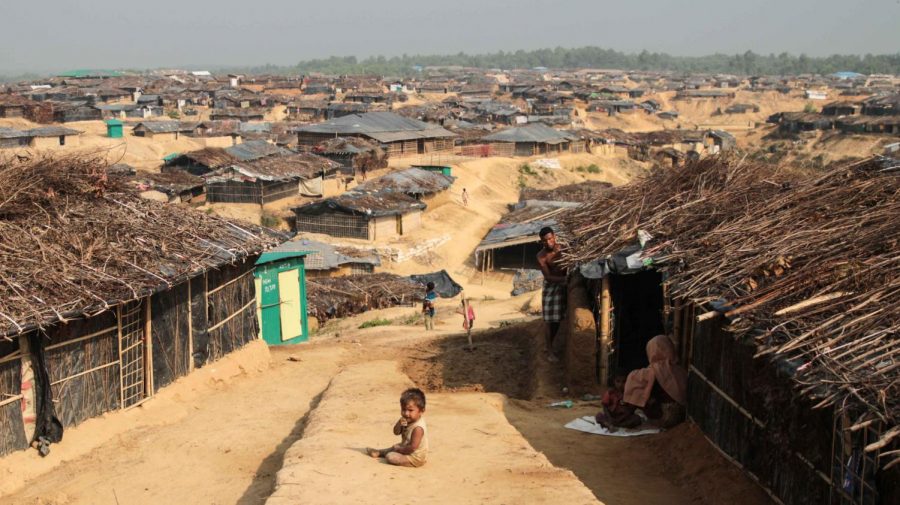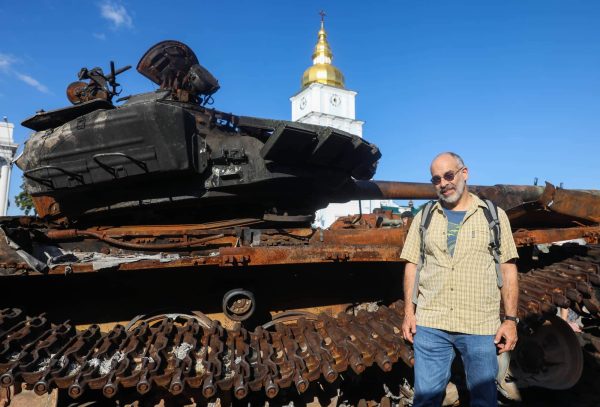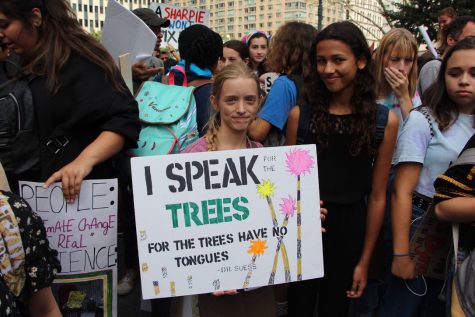The Rohingya: the world’s most persecuted minority
Credit: Courtesy of Wikimedia Commons
Rohingya Muslims face increasingly unpleasant conditions in refugee camps after escaping persecution in their native Myanmar.
November 30, 2017
As students and teachers enjoy Hackley’s safe environment, at the other end of the globe, Myanmar’s Rohingya Muslims face a remarkably different reality. In examining the crisis from an international standpoint, History teacher Vladimir Klimenko offered insight on the relevance of the alleged “ethnic cleansing.”
Often called the “world’s most persecuted minority,” the Rohingya are a Muslim ethnic group in Buddhist majority Myanmar, living mostly in the western Rakhine State. Claiming the Rohingya have been living in Myanmar illegally for decades, the Burmese government has denied the Rohingya citizenship leaving them in essence “stateless.” Consequently, extremist Buddhists in the Rakhine state have long supported a horrific military campaign of systematic violence against the Rohingya Muslims’ existence.
Conflicts escalated on August 25th when a group of Rohingya militants attacked police ranks, killing 12. In response, the Burmese government launched attacks on the Rohingya for alleged terrorism.
The military opposition against the Rohingya Muslims has caused 500,000 to flee their homes in Myanmar with hopes of survival in Bangladesh. Refugees have recounted stories of arson, fires, pillaging, mass murder, and gang rape in their abandoned villages, surmounting to what the UN High Commissioner for Human Rights called “a textbook example of ethnic cleansing.”
We should care for several reasons. The first and more obvious one is a humanitarian one. And a second and perhaps less obvious one is, that, the world needs to be serious about maintaining international standards
— Vladimir Klimenko
The migrants’ journey to Bangladesh has been anything but easy. Buddhist extremists have planted landmines along the path to safety, leaving many wounded, weak, or even dead once arriving in Bangladesh. Refugee camps are extremely overpopulated, medical care and food are in high demand, and disease is beginning to spread.
Myanmar’s head of state Aung San Suu Kyi has yet to condemn the military violence consuming her nation. For this failure, she has received constant ridicule from leaders around the world.
Mr. Klimenko offered insight on the relevance of the Rohingya crisis to the Hackley campus. “We should care for several reasons. The first and more obvious one is a humanitarian one. And a second and perhaps less obvious one is, that, the world needs to be serious about maintaining international standards,” Mr. Klimenko explained. “In the absence of those, and in the absence of their enforcement, this type of violence will occur more often and more viciously.”
Nodding to what members of our community can do to help out with the crisis, he acknowledged that the most feasible course of action for most members of the Hackley community is simply to donate money or advocate.
Because it is sometimes difficult to gage the atrocities ensuing thousands of miles away, it is important to understand how and why events like this take place and to advocate in preventing them from happening in the future.









